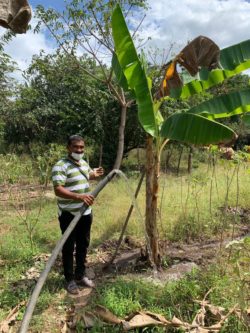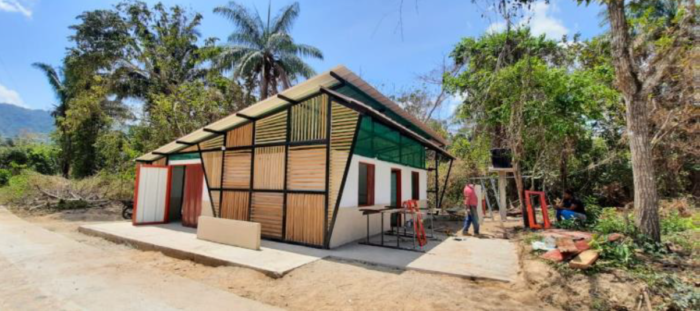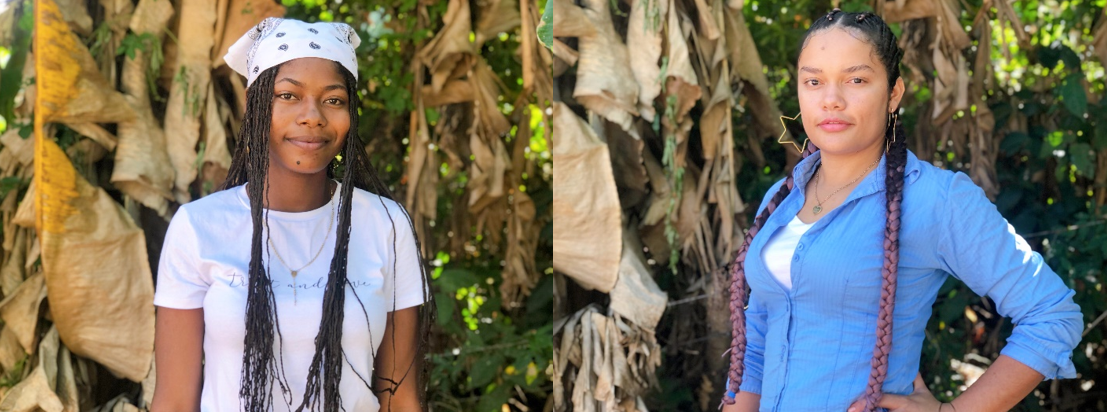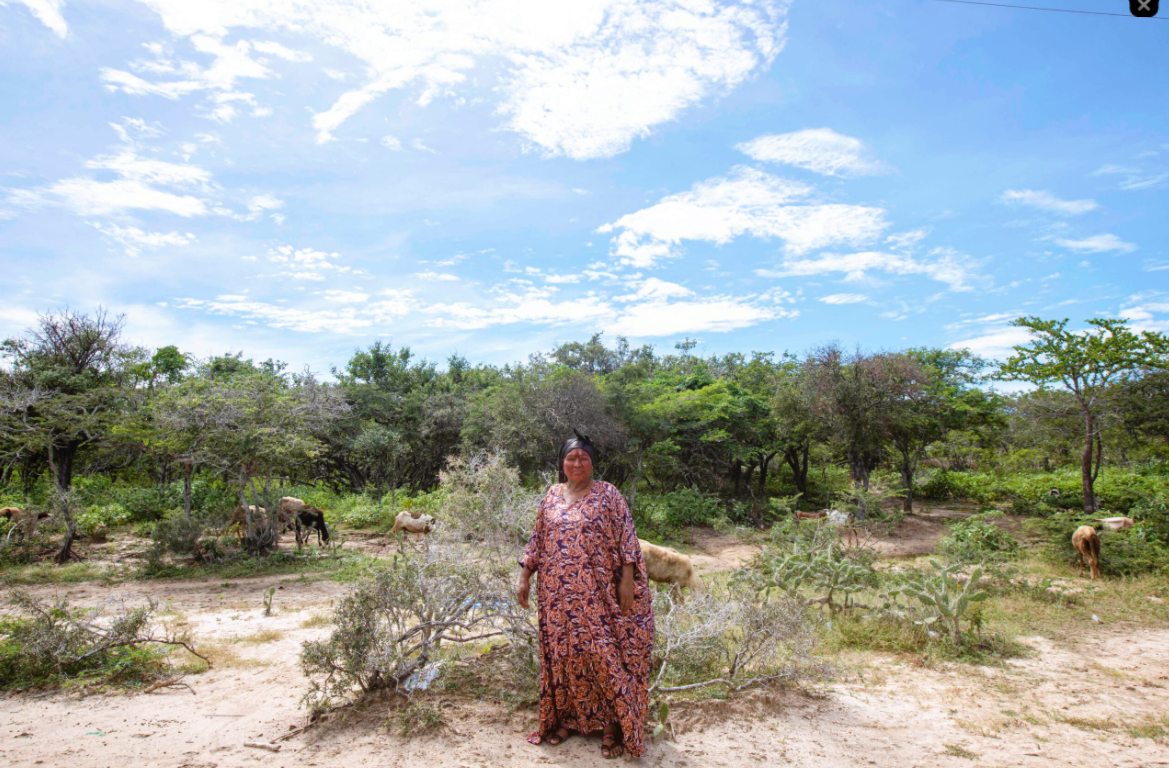South America
Keys to Peace: Supporting the Resilience of Rural Communities in La Guajira
The landscape of the department of La Guajira is diverse as its population. Outside of the sleepy capital of Riohacha, where towering palm trees and modest high rise buildings dot the ocean boardwalk, the land gives way to a vast desert landscape.
On the outskirts of the coastal city, signs mark the entrances to indigenous Wayuu villages where the Wayuu make up over 40 percent of the department’s population. An hour or so outside of the city you reach the base of the Sierra Nevada mountains and the desert gives way to rolling hills and farmland as you drive through the Afro-Colombian and indigenous villages of Tomarazzon and Juan y Medio.
The region was the site of intense fighting during the armed conflict that has devastated Colombia since the 1960s but which intensified in the 80s, 90s and early 2000s, causing thousands of families to abandon their farming plots and flee to neighboring Venezuela.
According to the National Registry Victims of armed conflict in Colombia (RUV), 90 percent of people in this region have been affected by the conflict and 70 percent have been displaced at least once, one of the highest rates in the country. Farmers began to return to the region in 2012, after the Peace Accords with the FARC began negotiations in Havana, sparking hope throughout Colombia that it could begin to build a more peaceful future, starting in the rural areas of the country that had suffered the brunt of the violence.

When Malteser International Americas (MI Americas) began working in La Guajira in 2015, the region was suffering from severe drought, with barely any rainfall for almost two years. The farmers were struggling to live off the land their families had cultivated for generations. Production dropped as much as 90 percent. Hunger and malnutrition skyrocketed as the land could not yield enough for family consumption.
Furthermore, decades of broken promises from the government and the pitting of communities against each other during the conflict created a deep-seeded lack of trust and left communities fragmented and families isolated, even as they returned to their ancestral lands and began efforts to rebuild.
In partnership with local partners Association of Biologists of University of the Atlantic (ABIUDEA), PDPC Cesar, and with funding from the German Government, MI Americas launched a project in 2015 to improve water access and food security for families in the region, installing irrigation systems and providing seeds for new crops to help families diversify their diet and income. Recultivating the land after years of neglect and drought, as well as rebuilding trust between communities that have suffered from generational violence, has been a complicated process. However, farmers recognize that it is an important hurdle to overcome in order to build a more prosperous and peaceful future for their communities.
“When the project started, we weren’t able to live of our land. We saw this partnership as an opportunity to move forward and rebuild. From the beginning, it was our ideas driving the process.” Jimmy Chacon, community member, Las Balsas
Adapting agriculture to worsening weather conditions
Communities in La Guajira bear the brunt of increasingly unpredictable and unstable weather patterns caused by climate change, which have transformed the landscape over the years and forced them to rethink their farming practices. Farmers have traditionally burned brush to clear and fertilize land for new crops. In rural areas where the nearest fire brigades are often hours away, these controlled fires often spiral out of control, burning hundreds of acres of land and displacing communities. This year alone, La Guajira has seen 15 forest fires destroy 260 hectares of land.
In response, MI Americas and local partner ABIUDEA have worked with communities to form and train response brigades that promote environmentally safe farming practices and have the capacity to address emergencies such as forest fires and floods. This aspect of the project has mobilized over 100 brigadistas to be first responders and catalysts in prevention and risk management.

The Brigadistas program has helped to organize and strengthen communities around a culture of conservation and preservation. Recognizing the vulnerability of rural communities to forest fires and floods, these communities now have trained and organized first responders working together to protect and conserve their land and livelihoods. The Brigadistas have collaborated with the local Red Cross to strengthen response protocols and coordination with local government.
In the past decade, La Guajira has experienced some of the most extreme droughts on record. Unfortunately, this is only expected to get worse as temperatures continue to increase by an average of 4 degrees over the next century, resulting in a 30-40 percent decrease in precipitation.
Taking back control through farmer cooperatives
Looking forward to 2021, the ‘Resilencia’ project aims to expand by helping farmers commercialize their crops and increase their income. While the improved access to water and irrigation has increased crop yields, Riohacha, the nearest city at between 1.5-2.5 hours away by car, is a small market that doesn’t offer fair prices to farmers, who toil 4-6 months harvesting yuca, mango, papaya, sugar cane, and platano. Farmers are forced to sell these goods at break-even prices to wholesalers.

During a monitoring visit in 2020, we held a meeting with participants in the community and asked them what changes they would like to see as next steps in the project. They shared that while the project has helped to increase crop yields and water availability, selling their products remains a challenge due to their isolated location and lack of market opportunities. Over the past year, we have been working with communities to create opportunities that ensure the hard work they invest cultivating their land can be rewarded.
In 2021, we will finish the construction of sugar cane processing plant that will allow farmers to store and process their harvest and work as a cooperative to receive better compensation for their product. This will help create a steady source of employment directly in the community while cutting out the middleman wholesalers and giving sugarcane farmers more leverage by managing all phases of the production cycle.
This process has been driven by youth in the community, who are determined to carry on the farming traditions of their parents and grand-parents, with a creativity and entrepreneurial zeal.

“Our parents and grandparents used to cultivate panela and sugarcane but that has really been lost and we want to reactivate it. An effect of this project has really had a social impact on the community. It has strengthened the way we work together. As a young person, you have to have a vision. The trainings have motivated me to plan for the future” -Youth training participant, Las balsas community.
If the commercialization process is successful for panela, farmers are eager to apply it to other crops as well. Addressing the barriers to development and prosperity in rural farming communities in Colombia is key to contributing to the country’s fragile peace process. In La Guajira, one of the poorest departments in Colombia, there is a lot of work to be done to address the drastic inequality and socioeconomic disparities that persist for indigenous and Afro-Colombian communities. By improving access to water and irrigation and supporting local initiatives aimed at facilitating dialogues around environmental and economic resilience, MI Americas has been able to strengthen the resolve and resilience of farmers in the region; a commitment that will be a defining factor in the sustainability of the peace accords.
Our work in the Sierra Nevada region of La Guajira over the past five years has been a lesson in community-driven development. Addressing the complex issue of climate change, environmental conservation, rural livelihoods, Disaster Risk Reduction and social cohesion with solutions that have come directly from community leaders as the project has evolved and the needs of the community along with it. While the threat of armed conflict has diminished in the region, the increasing threats of climate change present new challenges that need to be addressed in order to protect vulnerable populations that have historically been excluded. As Colombia faces an uphill battle towards fulfilling the promises that bind together the fragile Peace Accords, supporting proactive solutions towards improving the resilience of rural communities will play an important role as they work to overcome the threats of climate change that stand in the way of rural prosperity.


